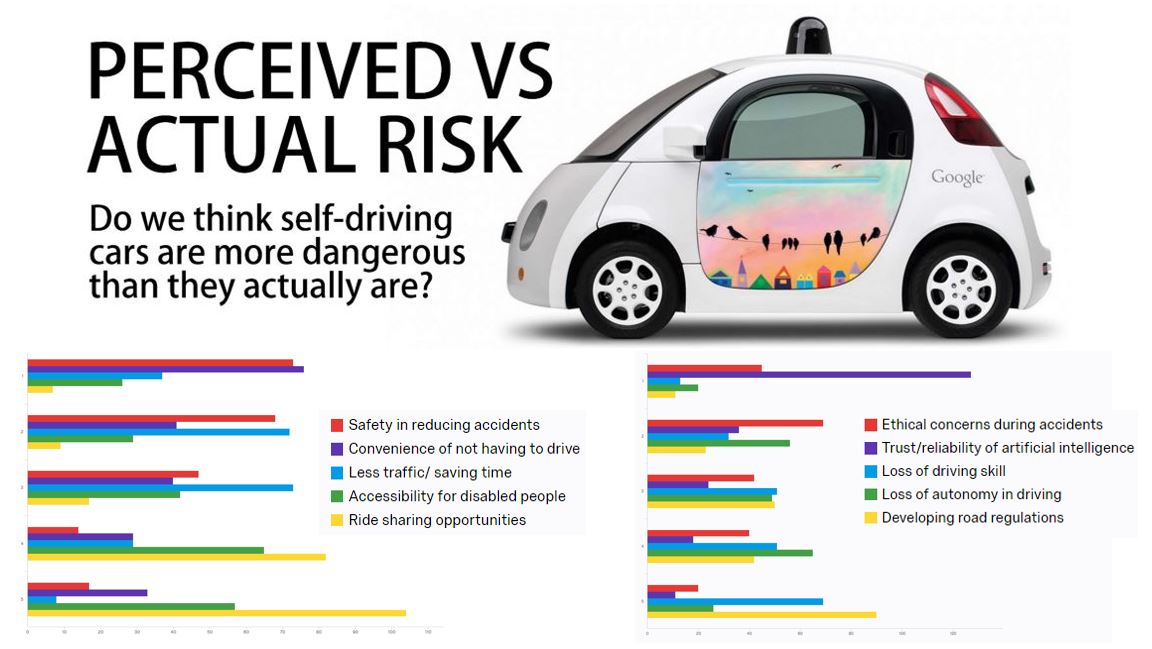This past week, I administered a survey to Bentley undergraduates for my honors capstone project on the actual vs perceived risk of self-driving cars. I hypothesized that people would think that self-driving cars are more dangerous than they actually are because of safety concerns from recent news on crashes and the general distrust of artificial intelligence to take over our cars. My guiding questions were as follows:
- Are humans prone to fear the brains that allow computers to make decisions?
- What aspects of self-driving cars does the public find appealing or are wary of?
- What type of behaviors/lifestyles do proponents and opponents of self-driving cars exhibit?
These all lead to the main critical question to be examined: what is the perceived risk by the public of self-driving cars? A total of 222 students responded to the survey, about 5% of the Bentley undergraduate population. The variables in this research are behaviors of consumer, knowledge of self-driving technology, and type of adopter of technology. The goal was to see what impact these variables have on the Bentley undergraduate’s perception of self-driving cars and create user profiles that could be targeted in certain ways to mitigate any existing fears and wariness surrounding self-driving cars. This information could be used by industry leaders to promote more awareness and comfort of the technology as well as be used at an educational level to ensure the public that self-driving cars could be a safer alternative.
Overall, the data from the survey shows that respondents do in fact fear AI as predicted in the hypothesis—this fear was the top concern for students given the various wary aspects of self-driving cars, in addition to ethical concerns in accidents. For a generally early-adopter school which tends to embrace electric cars and personal assistants like Siri, this seems to not fit the consumer profile given the other behaviors and psychographics. However, with such a new technology that has garnered national attentions on news outlets for accidents, this response is to be expected. Since all but one respondent was had heard of self-driving cars, students are evidently aware of the technology and likely encountered it on the news or from their own research. They are interested in the subject and thus in order to show less biased information than the news, the research aims to educate them on the actual risks when compared with their perceived risk of self-driving car technology.
Some of the results are summarized in the featured image. The left graph shows aspects of self-driving cars that students found the most appealing, with 1 having the greatest appeal. The right has aspects that students are most wary of, with 1 as most worrisome.



